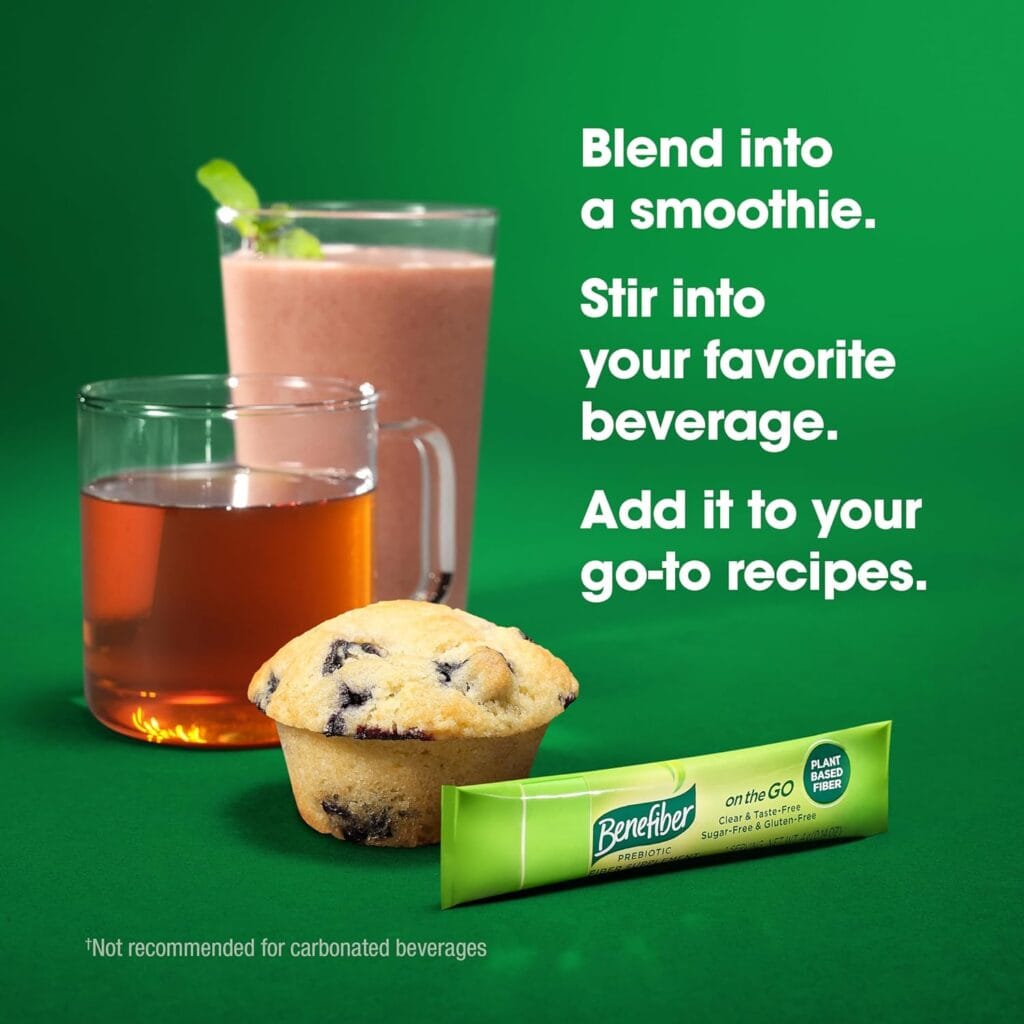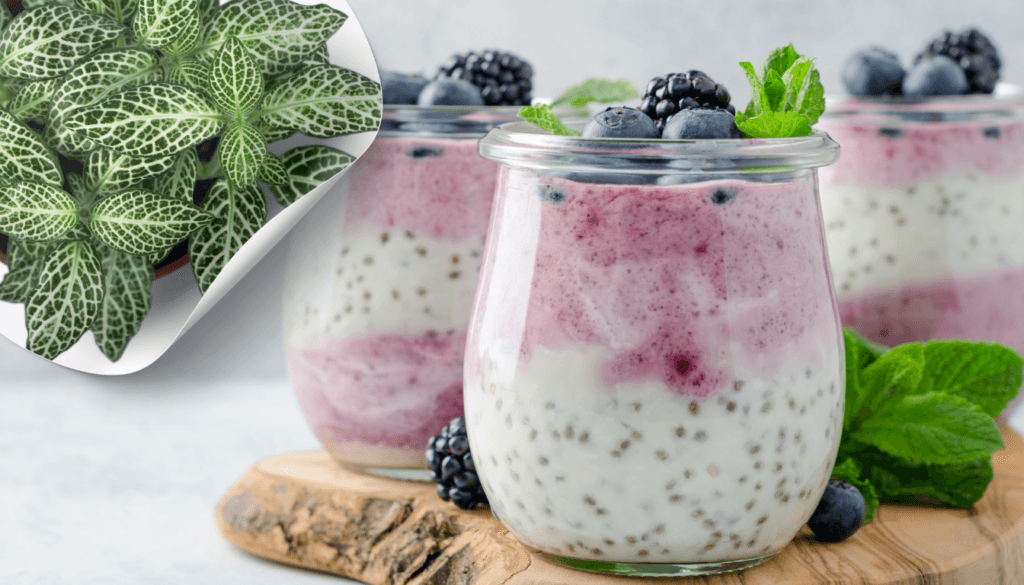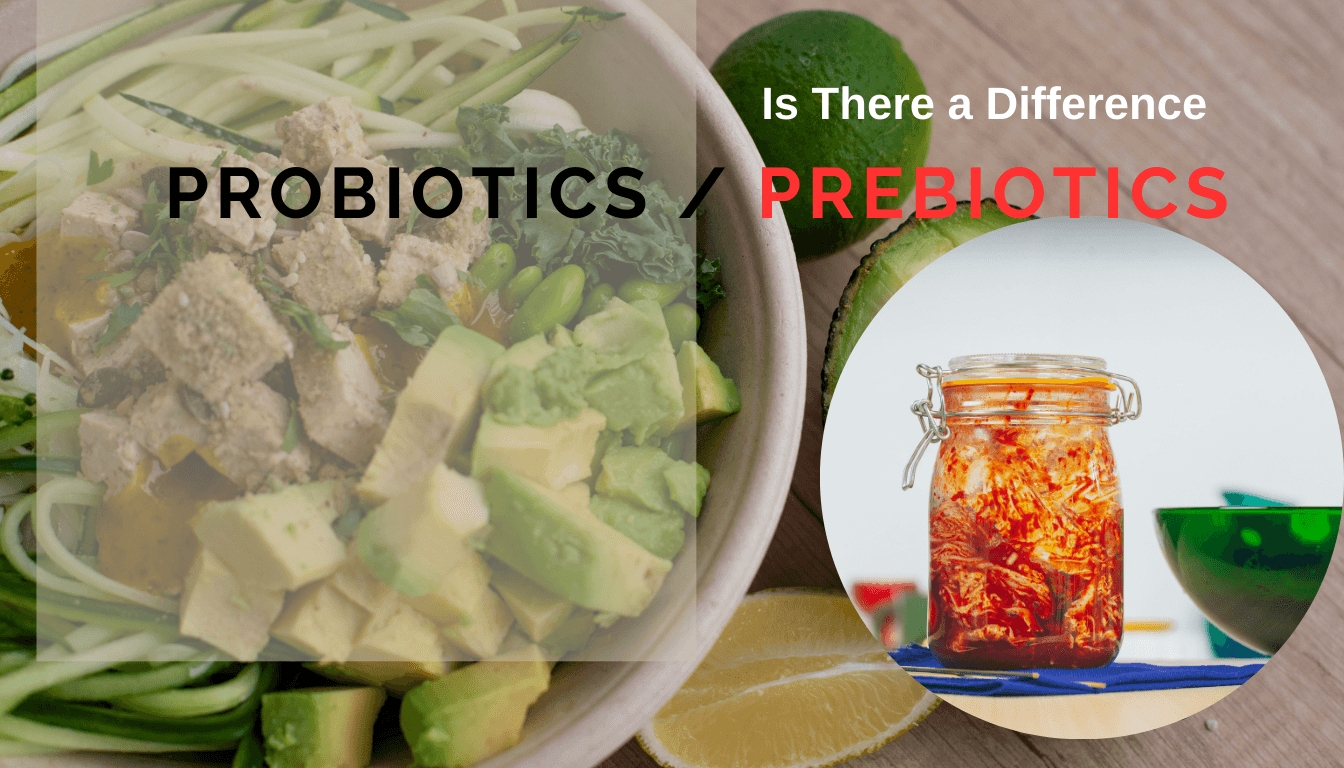Prebiotics are non-digestible fibers and other compounds found in some foods that serve as food for the good gut microbes. Probiotics are the good gut bacteria and prebiotics are their food. Making sure that these good microbes are healthy and well fed can lead to real benefits to your own gut health. And surprisingly – at least to me – this is all closely linked to better blood sugar management, reduced complications in people with diabetes, better weight management and even a better immune system. Who knew that gut microbes did all that?
More on the Power of Prebiotics for Gut Health
Your gut is home to trillions of bacteria, both good and bad. To maintain a healthy gut microbiome, you need those prebiotics that nourish the good bacteria already in your gut. Eating prebiotic-rich foods can improve the health of your gut by helping the body to use foods more efficiently, reducing bloating, and promoting proper bowel movement.

Support Your Gut Health Today! 🌿✨
Boost your digestive health effortlessly with Benefiber Daily Prebiotic Fiber Supplement! Made with wheat dextrin, this unflavored, gluten-free, and sugar-free fiber powder dissolves completely in your favorite foods and drinks—no grit, no hassle.
✅ Nourishes good gut bacteria
✅ Supports digestive health naturally
✅ Easy to mix into meals & beverages
Start feeling the benefits today! Order now and give your gut the daily support it deserves! 🛒💚
Natural sources include bananas (especially the green ones which you can cook), onions, garlic, leeks, and oats. These fiber-rich foods provide the essential nutrients that gut bacteria need to multiply and maintain a balanced gut flora. They also play a key role in the gut-brain connection, meaning they may support mental health and even influence mood and cognition.
For those who struggle to get enough prebiotic foods from their diet, supplementation can be a convenient option. However, it’s always best to focus on natural prebiotic sources whenever possible.
How Prebiotics Support Gut Health

Prebiotics pass through the digestive system without being broken down or absorbed. Once they reach the colon, they are use as food by the good bacteria and create beneficial substances called short-chain fatty acids (SCFAs) as by products. SCFAs, such as butyrate, acetate, and propionate, play a key role in reducing inflammation, enhancing gut barrier integrity, and improving overall metabolic health.
Top Prebiotic Foods for your gut microbes,
Making it easy to incorporate them into your diet. Here are some excellent sources:
- Green Bananas: Rich in resistant starch, a type of prebiotic fiber that helps improve insulin sensitivity.
- Onions and Garlic: Contain inulin and short chains of fructose molecules (FOS), which nourish gut bacteria and reduce inflammation.
- Okra: Okra contains a type of soluble fiber called mucilage, a gel-like substance that helps beneficial gut bacteria thrive.
- Garlic: Promotes Gut Health – Encourages the growth of beneficial bacteria. Helps balance gut flora, improving digestion – contains antioxidants that support gut and overall health. Aids in blood sugar, it helps regulate blood sugar, beneficial for diabetics.
- Leeks and Asparagus: High in inulin, a fiber that promotes SCFA production.
- Chicory Root: One of the richest sources of inulin, often used in fiber supplements.
- Whole Grains: Barley, oats, and whole wheat provide beta-glucan, a fiber known for improving blood sugar control.
- Legumes: Lentils, chickpeas, and beans are rich in resistant starch and promote gut health.
- Onions: Enhances Gut Health – Promotes the growth of good bacteria, improving digestion and nutrient absorption. A healthy gut microbiome strengthens the immune system. Prebiotics in onions help the body absorb essential minerals like calcium and magnesium.
Benefits of Prebiotics for Diabetes Management
- Improved Blood Sugar Control: Prebiotics support better glucose metabolism by enhancing SCFA production. SCFAs help regulate blood sugar by reducing insulin resistance (a condition where cells do not respond effectively to insulin).
- Reduced Inflammation: Chronic inflammation is common in people with diabetes and can worsen complications. Prebiotics reduce inflammation in the gut and throughout the body, improving insulin sensitivity.
- Better Gut Health: Prebiotics strengthen the gut lining, preventing harmful bacteria from entering the bloodstream. A healthy gut microbiome is essential for overall metabolic health.
- Weight Management: For people with Type 2 diabetes, maintaining a healthy weight is crucial. Prebiotics promote a feeling of fullness and reduce appetite, helping with weight control.
- Enhanced Insulin Sensitivity: Studies show that prebiotics like inulin improve how the body responds to insulin, making it easier to manage blood sugar levels.
Prebiotics and Cholesterol Management
Prebiotics not only benefit blood sugar control but also play a significant role in managing cholesterol levels, which is crucial for diabetics at risk of heart disease. Prebiotics like inulin and resistant starch enhance SCFA production in the gut, which directly influences lipid metabolism. SCFAs, particularly propionate, help reduce cholesterol synthesis in the liver. This can lead to lower levels of LDL cholesterol (often referred to as “bad cholesterol”) and improved overall heart health.
In addition, prebiotics improve the excretion of bile acids, compounds that help digest fats but can contribute to higher cholesterol levels if too much is reabsorbed into the body. By supporting a healthier gut microbiome, prebiotics promote balanced lipid levels and reduce cardiovascular risks, a common concern for diabetics.
How Prebiotics Improve Outcomes for Diabetics
In people with diabetes, the gut microbiome often shows an imbalance (dysbiosis) with fewer beneficial bacteria. Prebiotics help restore this balance by feeding the good bacteria, which then produce SCFAs. These SCFAs directly lower inflammation and improve how cells use insulin, leading to better blood sugar levels.
Additionally, research has found that prebiotics can:
- Lower fasting blood glucose levels by reducing insulin resistance.
- Improve HbA1c levels (a measure of long-term blood sugar control).
- Support better cholesterol levels, reducing the risk of heart disease, a common diabetes complication.
Prebiotics vs. Probiotics: What’s the Difference?
- Prebiotics: Non-living fibers or compounds that feed good bacteria in the gut.
- Probiotics: Live microorganisms (like Lactobacillus and Bifidobacterium) that provide health benefits when consumed.
While probiotics introduce beneficial bacteria, prebiotics ensure these bacteria thrive. Together, they work synergistically to improve gut and metabolic health. This combination is often referred to as synbiotics (e.g., eating yogurt with bananas).
Adding Prebiotics to Your Diet
Incorporating prebiotic-rich foods into your daily meals is simple and come with amazing health benefits. Here are some tips:
- Add green bananas to smoothies for a resistant starch boost.
- Use onions and garlic as flavor enhancers in dishes.
- Swap sugary snacks for roasted chickpeas or lentil-based snacks.
- Choose whole-grain bread or oatmeal for breakfast.
- Experiment with chicory root coffee as a fiber-rich alternative to regular coffee.
FAQ: Common Questions About Prebiotics
How do prebiotics help people with diabetes? Prebiotics improve gut health, reduce inflammation, and boost SCFA production. This helps lower insulin resistance and improves blood sugar control.
Can prebiotics lower blood sugar levels? Yes, by improving insulin sensitivity and enhancing gut microbiome balance, prebiotics contribute to better glucose regulation.
What are the best prebiotics for diabetics? Foods like green bananas, chicory root, garlic, and whole grains are particularly beneficial for people managing diabetes.
Are prebiotics safe for everyone? Prebiotics are generally safe, but some people may experience bloating or gas initially. Start with small amounts and gradually increase intake.
Can prebiotics prevent diabetes complications? By reducing inflammation and improving gut health, prebiotics can help lower the risk of complications such as heart disease and obesity.
Can prebiotics help with IBS (Irritable bowel syndrome)? Improving gut barrier function – They can help reduce gut permeability (“leaky gut”), which has been linked to IBS. Some prebiotics can decrease gut inflammation, which may also help with IBS symptoms.





